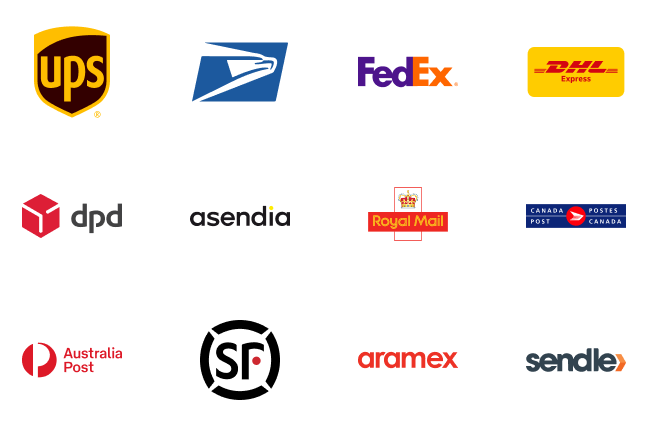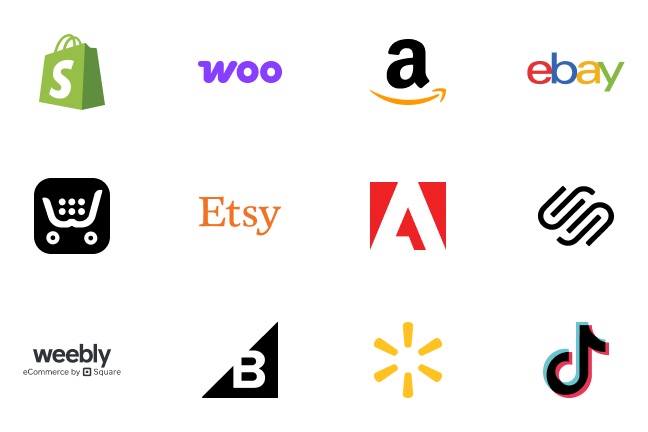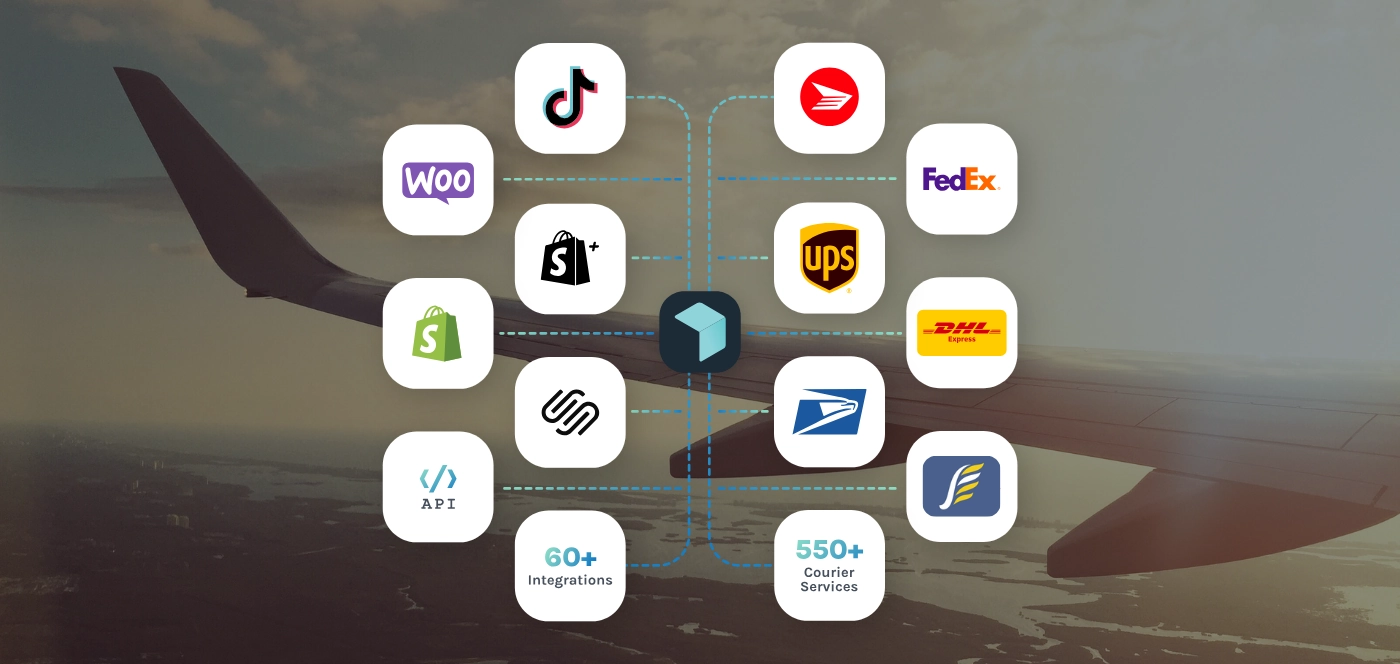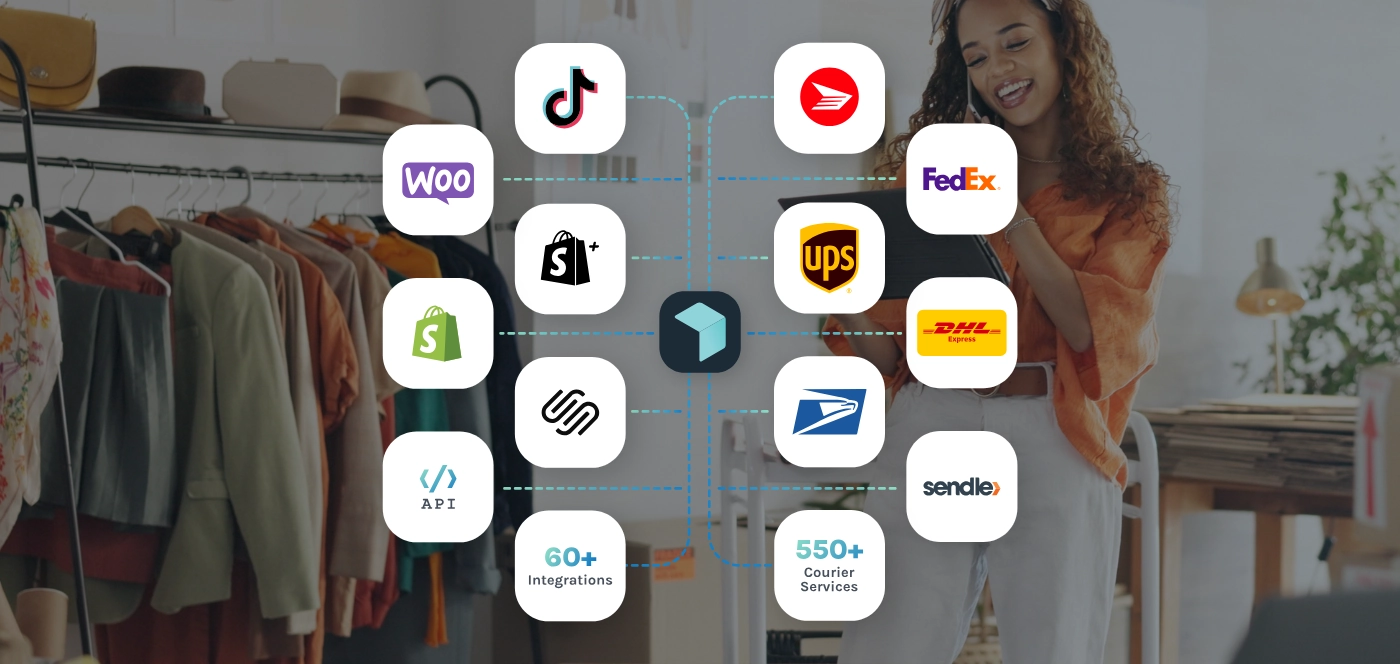Germany is a developed eCommerce market that continues to grow each year. German consumers are pretty tech savvy and love shopping online, making it a great country for eCommerce businesses to sell to.
To help you prepare your strategy for entering the German market, we've put together this guide that highlights eCommerce trends, discusses consumer expectations, and shares dependable shipping services to Germany.
The growth of online shopping in Germany
Online shopping growth in Germany has risen steadily over time. According to European eCommerce news, the German eCommerce market grew 9.5% in 2017, equalling to 85 billion euros. The estimated growth by the end of 2018 will be around 93 billion euros.
Some analysts say that in past years, they were seeing an average growth of 11-12%, so although recent growth hasn't been as much as before, it's still looking sustainable.
Germany comes in third as the most eCommerce revenue-generating country in Europe. 79% of Internet users shop online, the highest figure over the last few years.
What do German consumers like to buy?
According to Landmark Global, the top categories in eCommerce are:
- Clothing (16.7% of eCommerce sales)
- Consumer electronics (13%)
- Computers and accessories (5.5%)
- Shoes (5.4%)
- Books (5.2%)
According to SaleCycle, men tend to buy slightly more than women, spending €27.1bn compared to €25.7bn.
Also worth noting is that Germans have high quality standards for foreign goods that they purchase, as they have a rich manufacturing history. The average online shopper spends €1157 annually online, which shows they are willing to pay for quality.
What are the trends for eCommerce in Germany?
- Cross-border eCommerce remains strong. According to Landmark Global, Germany is responsible for 15% of global cross-border sales, with more than half of eCommerce buyers purchasing goods outside of Germany.
- Countries that Germans like to buy from are the UK, the US, and China.
- According to Marketing Sherpa, Germans are prone to return items a lot. This is because "open invoices" are a popular payment method, where they can receive an item first and then pay the invoice after a certain amount of time. If they simply don't like the item upon arrival, they are happy to return without having to wait to be reimbursed.
- Germans care about environmental issues and social responsibility. Marketing your brand along those terms can help attract more customers.
- Omni-channel shopping is catching up in Germany, and mobile commerce is fast becoming the most used method for buying and selling online.
Payment methods used by German consumers
German shoppers have historically been reluctant to live beyond their means, and they are protective of their privacy. Therefore, you will notice that credit and debit card payments are not as popular in Germany as they are in the rest of the western world.
As mentioned above, most Germans prefer open invoices in addition to direct debit bank transfers when buying products online. However, according to Landmark Global, the next popular payment option happens to be PayPal and other mobile wallet apps, so not all is lost if you normally collect payment by credit card.
Shipping services and delivery preferences in Germany
Germans appreciate fast, free shipping, just like everyone else.
In terms of couriers, DHL is very popular for domestic shipping for package delivery, while UPS, FedEx, and the postal service are popular for cross-border shipping - especially if you want to ship from the USA to Germany.
According to Translation Laboratory, "The choice of having several delivery methods alone can have a positive impact on customer satisfaction in 79% of cases." (To offer this to your customers, consider using Easyship's Rates at Checkout, which shows the fastest, cheapest, and best value for money solutions based on your customer's location.)
The best times to sell online in Germany
Here's what the sales calendar looks like:
- There are huge clearance sales for winter and summer, usually on the last Monday of January and July, which continue throughout the week
- Valentine's Day
- Mother's Day
- Father's Day
- Easter and Christmas are huge in Germany. You will notice a lot of huge discounts and sales for gifts
- Halloween
- Black Friday and Cyber Monday have taken off in Germany, so don't forget to include them in your marketing plan!
- Saint Nicholas Day, on December 6, is a German tradition where children leave their shoes out for Saint Nicholas to leave fruits, treats, and small gifts.
Important restrictions for shipping to Germany
Like all international destinations, there are certain items which are restricted or banned for import into Germany.
After the Schengen agreement, the importing items cross-border within the EU has become less strict. However, if you are sending items from outside the EU, you may come across stricter policies.
The following items are prohibited:
- Propaganda printed materials and media items
- Indecent and obscene materials
- Chemicals that are banned under the Chemical Weapons Convention
- Certain food items from specific countries (if the weight is 20kg or more)
- Weapons
- Knives
The complete list can be seen here.
There is also a list of restricted items can be sent, but require a special permit and license. The list includes certain gadgets, pets, cosmetics, medicines and more. You can view the complete list here.
Conclusion
Online shopping is widely adopted in Germany and the eCommerce market is looking positive, with forecasts saying that it will continue to grow. The trends are in the favor for cross-border vendors with multiple shipping options.
If you are a new online business and think it’s time to expand internationally, it wouldn't hurt to consider Germany, a country which is very receptive to cross-border business.















































.svg)
.svg)






.avif)
.avif)

.avif)
.avif)


.avif)


.avif)










.avif)
.avif)



.avif)
.avif)


.avif)
.avif)


.avif)



.webp)






.svg)





